Yinpeng Zhan
iPSCs Project Co-Leader | Innovating iPSC-derived Cell Therapies | PD of Cell Line Development & CMC of Therapeutics Antibodies @ Sorrento Therapeutics, Inc.

Journal of Stem Cell Research (ISSN: 2582-8797) (Crossref DOI Prefix 10.52793) (H-Index: 2) is open access, peer-reviewed journal publishing papers of high quality on the biological aspects of stem cell research. The journal publishes high-grade open access research articles, clinical trials, Reviews, Mini Reviews, Perspectives/Commentaries, Case report, Editorials, Letter to the editor, Short communication, Opinion, Book review, and other special featured articles related to the field of Stem Cell & Research.
Journal of Stem Cell Research covers all aspects of stem cell research ranging from molecular biology and cell biology to tissue regeneration and stem cells to translational research.
The journal aims to provide the authors with an efficient and courteous editorial platform. The authors can be assured of an expeditious publishing process. In this regard, the journal also provides advanced online posting of the accepted articles. The Journal of Stem Cell Research ensures barrier-free, open-access distribution of its content online and thus, helps in improving the citations for authors and attaining a good impact factor.
Submit the manuscript as an e-mail attachment to the Editorial Office at regenerativebiology@genesispub.org
Indexing and Abstracting
© 2023 genesis pub. CC BY-NC-ND 4.0 DEED | Open Access

iPSCs Project Co-Leader | Innovating iPSC-derived Cell Therapies | PD of Cell Line Development & CMC of Therapeutics Antibodies @ Sorrento Therapeutics, Inc.

Division of Maxillofacial Surgery, Royal College of Surgeons, UK

Professor and Director, Department of Biological Sciences and Public Health Sciences, Clemson University, USA

Professor and Chief of the Developmental and Regenerative Biology Thematic Research Program at the School of Biomedical Sciences, Chinese University of Hong Kong

Cellular and Biocellular Regenerative Medicine, Missoula, USA

Director, Veterinary Regenerative Medicine Laboratory Jockey Club. Buenos Aires, Argentina

Research Assistant Professor, Department of Pediatrics, Northwestern University Feinberg School of Medicine, Chicago, Illinois, USA

Consultant Clinical Scientist, Cambridge, UK

Associate Professor, Department of Nephrology, Chinese PLA General Hospital, Chinese PLA Institute of Nephrology, State Key Laboratory of Kidney Diseases, National Clinical Research Center for Kidney Diseases, Beijing, China

Institute of Diabetes and Regeneration Research, Helmholtz Zentrum München, 85764 Neuherberg, Germany

Department of Plastic, Reconstructive and Aesthetic Surgery, University of the Witwatersrand, Johannesburg, South Africa

Professor & Researcher of Medicinal Chemistry and Drug Discovery, Mansoura University, Egypt

Staff Scientist; Department of Developmental Biology; Washington University School of Medicine in St. Louis, USA

iPSCs Project Co-Leader | Innovating iPSC-derived Cell Therapies | PD of Cell Line Development & CMC of Therapeutics Antibodies @ Sorrento Therapeutics, Inc.

Exogems SA, c/o Biopole, Epallinges, Switzerland

Professor and Director, The Institute of Medical Sciences, Shanxi Medical University, China

Senior Specialist in Clean Room Laboratory and Transplant Stem Cell, Royan Stem Cell Technology Co. and Cord Blood Bank

Kidney-related diseases including ..
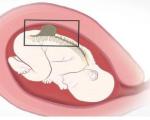
Spina Bifida is a rare congenital ..

The study of dental mesenchymal stem ..
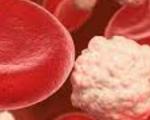
Type 1 diabetes is an increasingly ..

Human Immunodeficiency Virus (HIV) is a ..

Autoimmune disorders are becoming ..

In the past few years, interest in ..
Genesis Scientific Publication is a self-governed as a self-financed organization which aims not to receive any kind of external support from institutions/organization. Hence, the processing charges received from the authors and some academic/corporate sponsors are the sole means of the operation of manuscripts. And for maintenance, the fee is being received namely “Handling Fee”.
Thus, our group is like an open book that can be accessible by anyone who is passionate about journals with any chargeable fee i.e. it’s absolutely free for readers. However, authors are supposed to pay the handling fee which is required for the processing of articles only and no other fee will be charged. And there is a provision made for authors i.e. the payment will only be done after the publication of the manuscript. It provides immediate open access to its content on the principle that making research freely available to the public supports a greater global exchange of knowledge and the charges cover the costs of turning a manuscript into a finished article, and also consists of promotion and distribution fee. Thus, this fee varies accordingly with the extent or type of colored effects, complex equations, extensive editing, and extra elongation of no. of pages of the article, etc.
Moreover, no one can change one's mind or authors as it keeps on changing so authors are responsible for paying 70% of the manuscript handling fee once the article is submitted and accepted in the journal.
The standard processing fee of the journal for all type of articles is mentioned below:
| MANUSCRIPT TYPE | ARTICLE PROCESSING CHARGES | ||
| USD | EURO | GBP | |
| ALL ARTICLE TYPES | 3000 | 2759 | 2353 |
Genesis Journals is committed to maintain the best level of sincerity within the content published in the journal.
Genesis Journals following International Committee of Medical Journal Editors principles on the way to affect acts of misconduct thereby committing to research allegations of misconduct to make sure the purity of research.
The research being reported in articles must be conducted in an ethical manner and must suits all relevant legislation. Authors must refrain from engaging in scientific misconduct.
Authors should present their results honestly and clearly without any fabrication, falsification, or any kind of inappropriate data manipulation. The authors should strive to explain their methods clearly and unambiguously must guarantee the originality of their material and their findings are often confirmed by others.
Authors should provide appropriate acknowledgement and authorship. All authors must have significantly contributed to the research. Authors must refrain from deliberately misrepresenting a scientist’s relationship with published work. Contributors who have made fewer substantial contributions to the research or to the publication are often acknowledged but shouldn’t be identified as authors.
Authors must tell the journal once they have an immediate or indirect conflict of interest with editors or members of the editorial board or International scientific committee.
Genesis Journals employ a double-blind review process. All contributions are going to be initially assessed by the editor. The editor is solely and independently liable for selecting, processing, and deciding which of the articles submitted to the journal meet the editorial goals and will thus be published. Each paper selected is shipped to two independent peer reviewers who are experts in their field and ready to assess the exact qualities of the work. The editor is liable for the final decision regarding whether the paper is accepted or rejected.
The decision to publish a paper will always be measured in accordance with its importance to researchers, practitioners, and potential readers. Editors should make unbiased and independent decision.
The editor’s action and decision are constrained by ethical and legal requirements like its own governing infringement of copyright and plagiarism.
Editors who make final decisions about manuscripts should withdraw from editorial decisions if they need conflicts of interest or relationships that pose potential problems concerning articles into account. The responsibility of the ultimate decision regarding publication are going to be attributed to an editor who doesn’t have any conflicts of interest.
The members of the editorial board ,chief editor, scientific committee, and reviewers shall withdraw in any case of conflict of interest concerning an author or authors, or the content of a manuscript to be evaluated.
The Journal will avoid all conflict of interest between authors, reviewers, and members of the editorial board and International scientific committee.
Each article submitted is the responsibility of one member of the editorial board or of the international scientific committee, who undertakes to have it evaluated by two peers who are experts in the field and who evaluate it anonymously.
Reviewed articles are treated confidentially by journal editorial board members and reviewers
In no case shall a journal and members of the editorial board encourage misconduct of any kind.
Members of the Journal editorial board shall attempt to prevent misconduct by informing authors and reviewers about the moral conduct required of them. Members of the editorial board, scientific committee, and reviewers are asked to remember of all kinds of misconduct to spot papers where research misconduct of any kind has or seems to possess occurred and affect the allegations accordingly.
Where appropriate, journal editors encourage authors to share the info that supports research publications. Editors encourage authors to state the supply of their data during a data statement attached to the submitted article. With the info statement, authors are often transparent about the info they utilized in the article.
All reviewers must know and keep in mind the editorial policy and publication ethics and malpractice statement.
Genesis Journals requires potential reviewers to have scientific expertise or significant work experience in a relevant field. They must have acquired recognized expertise by their peers and recently conducted research work. Potential reviewers should provide personal and professional information which is accurate, and which gives a fair representation of their expertise.
All reviewers must likewise withdraw if they feel their evaluation of the material will not be objective or they know they are unqualified to evaluate a manuscript, or if they understand themselves to be in a conflict of interest.
Reviewed articles are treated confidentially by reviewers and members of the editorial board and international scientific committee.
Reviewers should point out relevant published work which has not yet been cited in the reviewed material. Reviewers are asked to identify papers where research misconduct has or seems to have occurred and inform the editorial board, which will deal with each case accordingly.
The copyright on the original content and intellectual property shall remain with the authors. The authors grant, in exchange for publication in the Journal exclusive licensing of first publication, giving the Journal the right to produce and disseminate the contributions, whether collectively with other articles or individually, and in all media, forms known or to come.
The authors shall guarantee the originality of their material and shall not publish any text that would appear to contradict. Plagiarism and false or intentionally misleading declarations constitute behaviour that is at odds with the ethics of scientific publication.
No significant part of the article shall have been previously published either as an article or as a chapter or be under consideration for publication elsewhere.
If the authors intend to reproduce their article in other publications or for any other purpose and by any means, they must obtain the written authorization of the editorial board.
Articles are published in open access. There are no associated subscriptions or pay-per-view fees. All material is made available under the terms of the Creative Commons Attribution-Noncommercial-No Derivatives 4.0 International license (CC BY-NC-ND 4.0).
Journal’s content is archived in several copies by open edition, a publisher of online, free-access books and journals longer published, open edition maintains free access and will continue to make all archives available online.
The names of authors, reviewers, and collaborators along with the names of their organizations and institutional affiliations, which the Journal may record during its operations, shall remain confidential and shall not be used for any commercial or public ends beyond the signature of the articles published. However, this information may sometimes be required by government grant-giving bodies. The secrecy of the peer review selection shall be maintained when transmitting this information. A list of the names of authors, reviewers, and collaborators and the names of their organizations and institutional affiliations shall be sent with no explicit links between those named.
Genesis Journals may use these lists for its own purposes of request articles, collaboration, or other contributions, notably through occasional e-mails.
The authors retain the copyright of the content and grant the magazine the right to be the first to publish the article. This publication will be made under license, which allows others to share and reproduce the contents as long as the original authorship in the magazine is acknowledged and quoted.


Spina Bifida is a rare congenital anomaly that affects children across the world daily. This birth ..

Kidney-related diseases including chronic kidney disease, acute kidney injuries, and end stage ..

In the past few years, interest in adipose tissue as an ideal source of mesenchymal stem cells ..
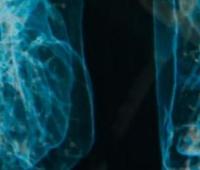

Autoimmune disorders are becoming increasingly common in the United States, with tens of millions ..

Human Immunodeficiency Virus (HIV) is a harmful disease that destroys T lymphocytes, key cells ..

Type 1 diabetes is an increasingly widespread autoimmune disorder that destroys the ..

The study of dental mesenchymal stem cells, also known as DMSC, has been very beneficial in gum ..

A stroke is a neurological disease that causes damage to the brain due to an obstruction of blood ..
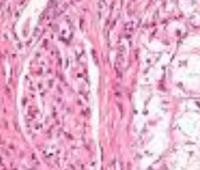
Renal Cell Carcinoma (RCC) is the most common type of urogenital cancer and is currently ranked as ..
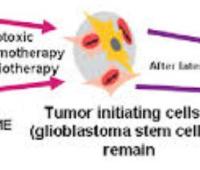
Glioblastoma is a devastating grade IV cancer that affects the central nervous system and the ..

Background Knee osteoarthritis (KOA) is one of the most prevalent degenerative diseases that ..

Celiac Disease affects 1% of the population in the Western world, however, the number of affected ..
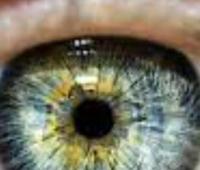
Retinal degeneration is a major cause of blindness and visual impairment in over 30 million people ..

Mesenchymal stem cells, pluripotent and differentiable cells found naturally within bone marrow, ..
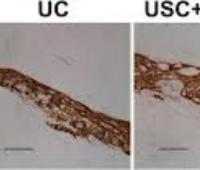
Former stem cell research and clinical application has relied on stem cells derived from bone ..

The research of stem cells and their application in clinical practice represents one of the most ..

Background: COVID-19 disease has gained much attention across the globe due to its quick ..
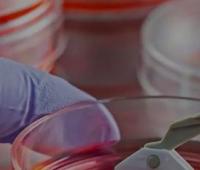
Stem cell therapy is introduction of new adult stem cells into damaged tissue in order to treat ..

Immune Thrombocytopenic Purpura also known as Idiopathic Thrombocytopenic Purpura or ITP, is an ..

Anterior cruciate ligament (ACL) rupture is one of the most common knee injuries with an annual ..

Background &Objective: Markers such as Ki67 and CD10 play a role in the prognosis of follicular ..

The need for an effective and accurate tool to diagnose and treat mental disorders, like bipolar ..

Mental health disorder prevalence is rising within the United States and worldwide. With this ..

Remitting seronegative symmetrical synovitis with pitting edema (RS3PE) is a rare rheumatologic ..

Multiple myeloma is the second most common hematological disease characterized by uncontrollable ..

The growing obesity epidemic has presented many challenges in the treatment and prevention of the ..

Sickle cell disease is an inherited hematological disorder where the presence of this gene can ..

Bronchopulmonary dysplasia (BPD) affects over 15,000 infant births per year in the United States ..

High Risk Neuroblastoma is a pediatric cancer that arises from immature nerve cells. While low and ..

Chronic or non-healing skin wounds present an ongoing challenge in advanced wound care and the ..

The purpose of this review is to synthesize the existing literature on the intriguing research and ..

Current research in HIV treatment is oriented toward developing a therapeutic that can permanently ..

COVID-19 is an illness that can produce life-threatening complications in hosts. It is caused by ..

Objective: This is the first report on the safety and clinical efficacy of a bone marrow ..

In clinical medicine, hematopoietic stem cells have been utilized as a great source for disease ..

Despite recent advances in diagnosis and treatment, colorectal cancer (CRC) remains one of the ..

Myocardial infarction (MI) results in irreversible loss of cardiomyocytes (CMs) and can often lead ..

Rotator cuff injuries lead to impaired shoulder function, weakness, decreased range of motion, and ..

Hearing loss affects millions of Americans in every age group, and it can be either conductive or ..

Cartilage injuries and disease are observed in a varied range of people; for instance, cartilage ..

Here we reviewed various protein receptors and their roles on chondrocytes. In connection with this ..

Regenerative medicine is an emerging multidisciplinary science that endeavours to replace or ..

Despite the prevalence of traumatic brain injuries (TBIs) and neurodegenerative diseases, there is ..

Through research in regenerative medicine, advancement has been shown to improve and treat diseases ..

Epilepsy is a neurological disorder that yields recurring and uncontrollable seizures, as a result ..

Skin burn wounds can be very serious injuries with high-risk healing processes and leaving ..

Rheumatoid Arthritis (RA) is an autoimmune disease that targets the synovial joints of the body ..

Spinal cord injury (SCI) is damage to the spinal cord that leads to sudden loss of motor, sensory, ..

Northern White Rhinos (NWR) are functionally extinct, with only two females left on the planet. ..

Acute Lymphoblastic Leukemia (ALL) is a cancerous transformation in the blood and bone marrow ..

Secreted bone marrow mesenchymal stem cell derived extracellular vesicles (BM-MSC-EVs) are reported ..

Since the identification of mesenchymal stem cells, stem cell biology is a greatly researched field ..

Wnt proteins are secreted glycoproteins important for embryonic development, stem cell-mediated ..

Glia is defined as non neuronal cells with support functions, also known for supporting neurons and ..

Brain injury has been a major problem to cure, because of its complications in its nerve and cells ..

Stroke is a prevalent cause of death and disability worldwide with a limited time window for ..

Benzodiazepines (BZDs) are some of the most commonly prescribed medications in the United States ..

The specific set of cells from stem cells is a scientific miracle. These stem cells help in ..